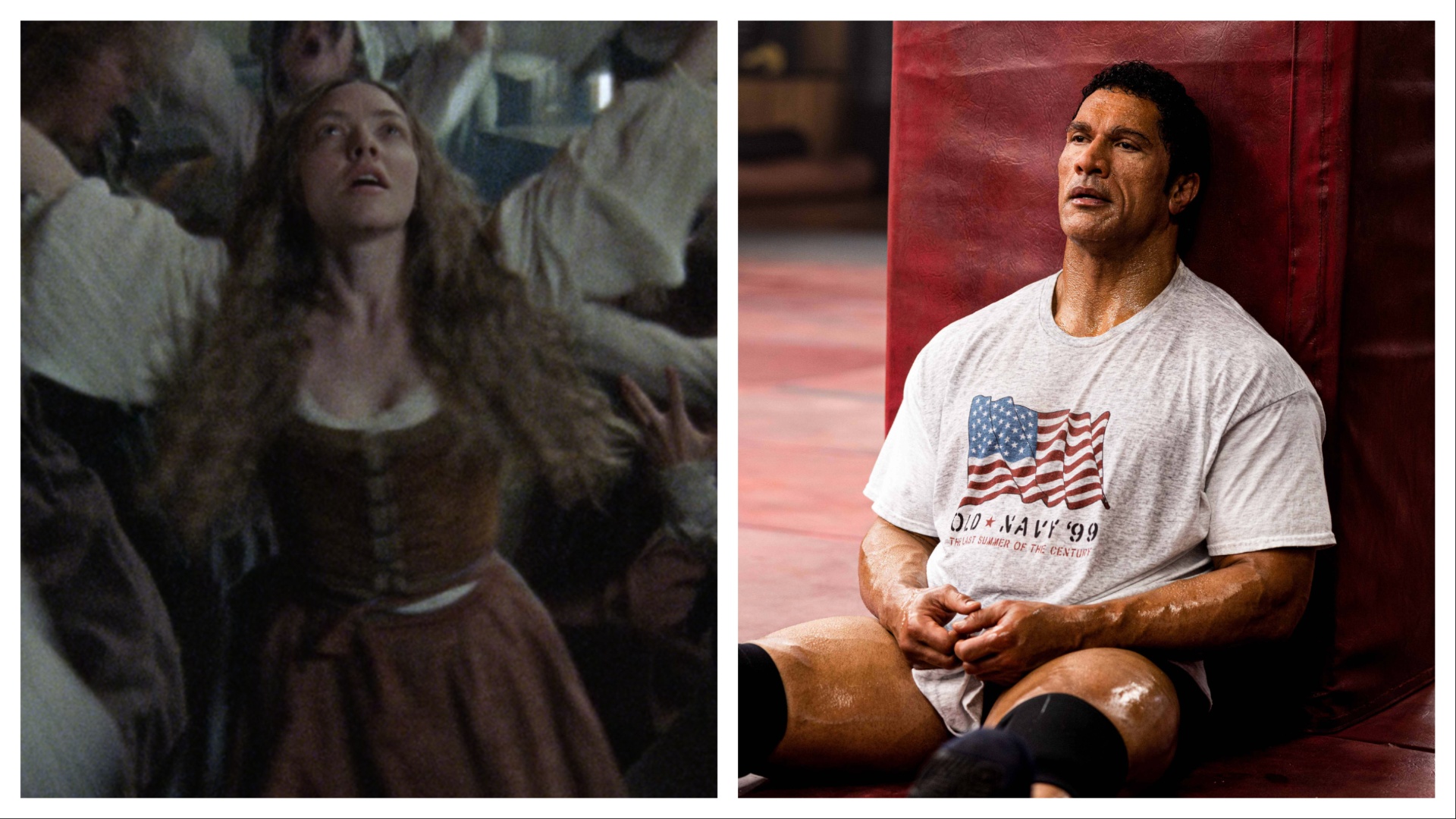There is a chameleonic quality to François Ozon; unlike many auteurs, he does not simply remake the same film in different guises. The cool, voyeuristic gaze of Charlotte Rampling in the psychosexual thriller “Swimming Pool” is nothing like the Catherine Denueve-led musical “8 Women,” just as the slippery, nesting doll of stories “In the House” is a world away from the camp and kinky erotic thriller “L’Amant Double.”
Cohering his body of work is a non-judgmental curiosity about socially transgressive behavior and a flair for capturing the body heat of sexuality. In bringing Albert Camus’ absurdist 1942 novella “The Stranger” to the screen, Ozon harnesses an embodied, erotic side of the story, which is quite a flex considering that the book is famed for featuring a protagonist so detached that it costs him everything.
Which isn’t to say that this is a subversive rewrite of the text. The key changes involve bringing out the individual humanity and political turmoil of the native Algerian characters, described by the book’s first-person narrator uniformly as “The Arab/s.” Save for slightly fleshing out some of these roles, Ozon’s script is loyal to the point of lifting most lines of dialogue verbatim. Not that the taciturn protagonist has much to say: “I don’t know” is his favorite reply.
Like Camus, the protagonist, Meursault (Benjamin Voisin from “Summer of ‘85”) is a French-Algerian living in Algeria during the time of indigénat, a code imposed by French colonial rule that gave the indigenous population inferior legal status and harsher punishments. Ozon swiftly conveys the underlying conflict with an establishing shot of graffiti that reads “Algerian Liberation Front” and then another of activists advocating for the French language.
This is not the kind of struggle that Meursault is likely to concern himself with. He is a neatly contained presence, showing no reaction to opening a telegram that reads: “MOTHER DECEASED, BURIAL TOMORROW.” Filmed in lush, Bressonian black-and-white by director of photography Manuel Dacosse, Voisin commands the camera’s gaze, even as his own remains opaque. He smokes like a chimney, sweeping butt after butt to rosebud lips before stubbing them out with more energy than he will use until his next cigarette. His hair (sometimes slicked back, sometimes with a forelock shaken loose) is the most dynamic aspect of his persona. Shaving is a ritual too. He capably enacts the routines of life, it is in the arena of social performance that he — a budding Bartleby — would prefer not to.
Still, Meursault travels through the sweaty, stultifying heat to the rest home where his mother passed away and carries off the required death duties, albeit without shedding a tear. The next day, at the baths in his hometown, he runs into a young typist he used to know named Marie (Rebecca Marder). The attraction is instant. They dive into the water and swim to a float where he rests his head on her body and they lie, lazily entangled, in a state of sun-drunk near-nudity. Sex and death are twins, after all.
Once dressed, she notices his black armband and offers condolences. He doesn’t miss a beat before taking her to the cinema. They fall into a relationship. And in this part of his life, passion burns brightly. Closer to home, people’s emotions are unrulier. Meursault shares his apartment block with neighbors that include a shambling old man Salamano (Denis Lavant), prone to yelling at and beating the dog he loves more than anything. Then there is Raymond Sintès (Pierre Lottin) whose violent relationship with his girlfriend, Djemila, sets in motion the events that come to define “The Stranger.”
The question of why our protagonist agrees to help Raymond in this scheme is given space to linger — is it because Raymond buys him with food and drink? Is it because “Arabs” “don’t count”? Psychological motive matters less than the sequence of causal events in the anaesthetized atmosphere of “The Stranger” and instead the mystery exists on its own terms.
Meursault is anything but rash. Whenever asked to do anything, he pauses to think. He is comfortable saying no. Yet he says yes when Raymond asks him to write Djemila a letter luring her to his flat, where he plans to administer punishment. The two become closer and Meursault — without particularly liking the man — is drawn into a rivalry between the virulently racist Raymond and Djemila’s brother and friends, who pursue revenge in her name.
Camus’ slim novel is wedded to Meursault’s point-of-view and he is framed as a man ultimately condemned by his failure to appropriately perform grief, with the wider social implications of his character left to the reader to unpack. Ozon (with a family history that leads back to French colonial Algeria) does some of that unpacking so the character is subtly reweighted, with the social role he chooses to occupy meaning as much as the consequences of his jarring mode of expression.
The early presentation of the film is as sleek and charged as a cat on a telephone wire. Crisp black-and-white visuals of a very photogenic, very strange man are scored by Kuwaiti musician Fatima Al Qadiri’s eerie music, and even if you haven’t read the book, the sense is this will not end well. The period recreation of ’30s Algiers is shot though with elegance, and there is a fetishistic attention to the beauty of faces, places and things. Meanwhile, Voisin gives a cerebral performance of a man who occupies and contributes to a thrillingly tactile space while his antennae are attuned to another realm entirely.
The state of alienation that permeates and infuses Camus’ prose is the missing ingredient here and, without it, Meursault cuts a very different figure — less adrift in ennui and more intentionally nihilistic. As Ozon has it, he is an attractive and vital loner whose impulsive act of violence is pre-empted by a moment of erotic transference. Its aftermath puts him into a legal system that, per his lawyer, wouldn’t fault him for what he did to an Arab, but his earlier failure to cry at his mother’s funeral? Criminal.
Ozon succeeds at drumming up at a heady atmosphere infused by the expectations of white supremacy and neurotypicality and — moment by moment — there are details to feast upon. Swann Arlaud from “Anatomy of a Fall” shows up as a priest who unlocks more words in ten minutes than Mersault has spoken in the result of the film put-together. This character development does not really land, however, and Mersault becomes increasingly hazy, disappearing into a cloud of abstraction in the third act.
The level of craft present in creating the mood is transfixing and the film works as a fever dream set in the tail-end of French colonial rule. But as an explicit adaption of the book by a mind in the process of birthing existentialism, it does not quite have the requisite courage or — dare I say it — strangeness.
Grade: B-
“The Stranger” premiered at the 2025 Venice Film Festival. It is currently seeking U.S. distribution.
Want to stay up to date on IndieWire’s film reviews and critical thoughts? Subscribe here to our newly launched newsletter, In Review by David Ehrlich, in which our Chief Film Critic and Head Reviews Editor rounds up the best new reviews and streaming picks along with some exclusive musings — all only available to subscribers.



